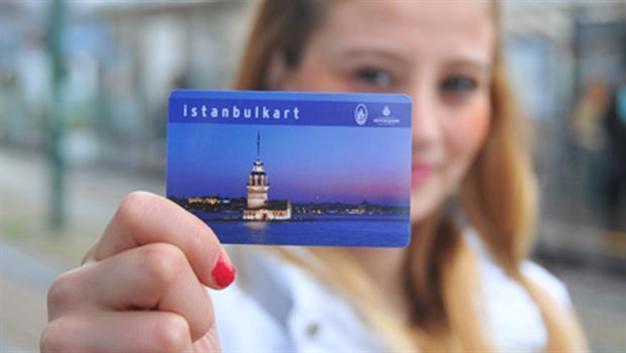Istanbul municipality moves to turn bus cards into money cards
ISTANBUL - Doğan News Agency

Transportations cards, which many Istanbul residents currently use to travel around the city, will soon also be used as debit cards for everyday purchases, according to a recent Istanbul Metropolitan Municipality (İBB) regulation.
The transport card Istanbul residents currently use, which is publicly dubbed the “Istanbulkart,” will also be used for electronic payment activities starting from 2016 as a debit card which can be used in cafes, restaurants, shopping malls and any other urban activities.
The regulation was passed at the İBB assembly in the monthly municipality meeting held in early November.
Around 19 million Istanbulkarts have been delivered so far, with a total of 180,000 transactions recorded on average monthly. Istanbulkarts can currently be used in Istanbul’s urban and suburban trains run by the Turkish State Railways (TCDD), Istanbul’s inner-city sea buses and ferries, public transit buses, metros, trams and other transportation means owned by the Istanbul Electric Tram and Tunnel Company (İETT), a private company which operates mass transit in Istanbul.
The technical work to convert the Istanbulkarts was reported to be ongoing and the practice is expected to be launched in early 2016.
“It’s not going be a credit card, but a wallet. It will be used everywhere like money,” Istanbul Mayor Kadir Topbaş recently said.
The İBB authorized the Municipal Data Processing Corporation of Istanbul (BELBİM) Electronic Money and Payment Services Company for 15 years in exchange for $1.5 million, excluding taxes.
The new cards will also be used in conjunction with İSPARK, an İBB subsidiary providing parking services throughout the metropolis.
Also during the İBB’s monthly meeting, the municipality passed another regulation which placed the management of taxi and minibus stations, as well as that of shared taxis, in Istanbul under İSPARK.
The goal of the regulation is saving time and fuel, while also preventing long traffic jams in the city, according to the regulation.
The project was briefly tested when İSPARK constructed 30 minibus stations and the result was reported to yield positive results in removing vehicles from traffic flow.
Also within the project around 18,000 taxis will be centrally controlled by a recently founded call center.
 Transportations cards, which many Istanbul residents currently use to travel around the city, will soon also be used as debit cards for everyday purchases, according to a recent Istanbul Metropolitan Municipality (İBB) regulation.
Transportations cards, which many Istanbul residents currently use to travel around the city, will soon also be used as debit cards for everyday purchases, according to a recent Istanbul Metropolitan Municipality (İBB) regulation.